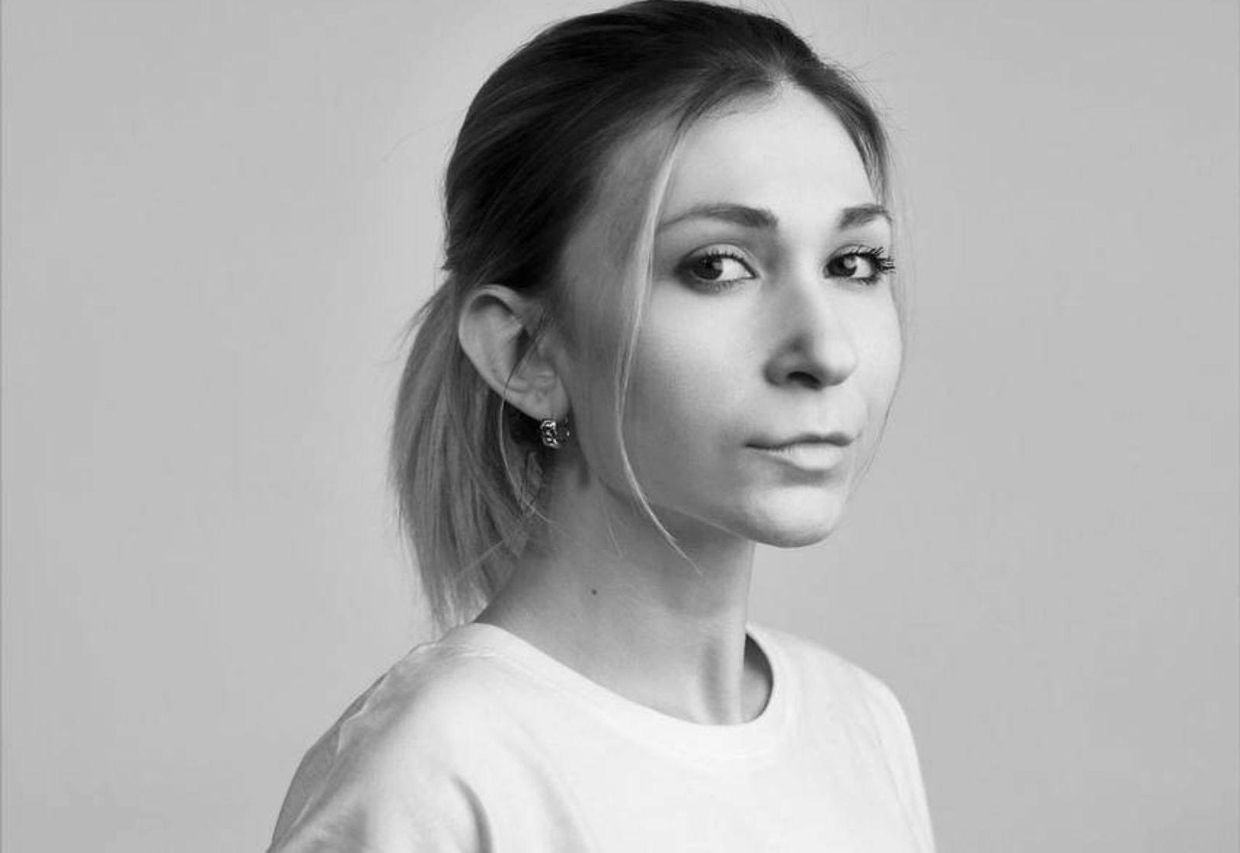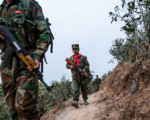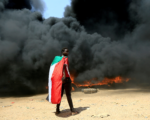Ukrainian journalist Viktoriia Roshchyna, 27, who reported extensively on life in Russian-occupied territories, has died while in Russian custody. Roshchyna disappeared in August 2023 after entering a region in Ukraine that had fallen under Russian control. Nine months later, Russian authorities finally confirmed her detention, though they provided no reason for her arrest.
This week, Roshchyna’s father received a brief letter from the Russian Ministry of Defence, notifying him of her death on September 19. The letter stated that her body would be returned during a future exchange of soldiers killed in battle between Russia and Ukraine. However, no details were provided about the cause or circumstances of her death.
A Vigil for Viktoriia
Over the weekend, Roshchyna’s friends and colleagues gathered at Maidan Square in central Kyiv to remember her. Holding up photographs of her smiling face, they expressed their grief and honored her legacy. One speaker praised her “huge courage,” while another, overcome with emotion, remarked, “We will miss her enormously.”
Roshchyna had made a name for herself by reporting from some of the most dangerous areas in Ukraine, often entering Russian-occupied zones to document the conditions faced by civilians under siege. Despite the risks, she insisted on telling the stories of Ukrainians trapped in occupied territories, often referring to collaborators as “traitors” and openly labeling Russian-controlled regions as “occupied.”
The Dangerous Path to Truth
Born in 1996, Viktoriia had a determination that set her apart. Even after being detained by Russian forces once before, she remained undeterred, opting to continue reporting from the frontlines as a freelance journalist. Former colleagues recall how she defied warnings from her editors and even her parents, who urged her to avoid the most perilous assignments.
In her reports, Viktoriia painted a vivid picture of the harsh realities faced by those living under Russian occupation. She was known for her tenacity, never using a pseudonym, and for continuing to write candidly about the war despite the danger.
Sevgil Musaieva, editor-in-chief of Ukrayinska Pravda, described Roshchyna as “absolutely amazing” and committed to exposing the truth about the war’s impact on ordinary Ukrainians.
Detention and Mysterious Circumstances
Roshchyna’s journey into Russian-occupied Ukraine began in July 2023, when she traveled through Poland and Russia before reaching the region. A week later, she called her family, explaining that she had been interrogated at the border for several days. By May 2024, it was confirmed that she was being held in Detention Centre No. 2 in Taganrog, a notorious facility in southern Russia known for its brutal treatment of Ukrainian prisoners. The prison has been likened to “Russian Guantanamo” for the conditions faced by detainees.
Hopes for her release were raised in September, when a fellow Ukrainian detainee reported seeing Roshchyna alive in early September. At the time, plans were reportedly underway for her to be included in a prisoner-of-war exchange between Russia and Ukraine. However, on the day of the swap, Roshchyna was not among those released. Instead, she and another Ukrainian woman were moved to an undisclosed location, possibly Lefortovo Prison in Moscow, a facility run by the FSB and often used for political prisoners and those accused of espionage.
In late August, Roshchyna had spoken to her father from prison. During the conversation, she revealed she had begun a hunger strike, but her father persuaded her to resume eating. This detail, according to Ukrainian officials, requires further investigation to determine whether her death might have been related to her hunger strike or if she was subjected to other forms of mistreatment.
Calls for Justice
Ukraine’s General Prosecutor’s Office has since upgraded Roshchyna’s case from illegal detention to murder, following confirmation of her death. Ukrainian officials, including MP Yaroslav Yurchyshyn, have condemned her death, describing it as the “killing of hostages” by Russia.
As of now, Russian authorities have provided no explanation for Roshchyna’s death or the circumstances surrounding her detention. Her father and colleagues remain in the dark about why she was held and why she wasn’t included in the planned prisoner exchange.
Civilian Hostages of War
Roshchyna’s death highlights the broader issue of civilian detentions in Russian-occupied territories. Since the start of Russia’s full-scale invasion of Ukraine, thousands of civilians have been detained, with their families left in limbo regarding their whereabouts or conditions. According to the Media Initiative for Human Rights, at least 1,886 civilians have been forcibly taken by Russian forces, although the true number may be much higher. These individuals range from ex-soldiers to local officials, and their detention often occurs without formal charges or access to legal representation.
Continuing Viktoriia’s Legacy
Roshchyna’s colleagues are determined to continue her work and ensure that her death is fully investigated. Angelina Karyakina, a former editor at Hromadske, expressed her belief that Viktoriia would want them to continue pursuing the truth rather than mourn her loss. “Her life was her work,” Karyakina said. “What’s important for us as journalists is to find out what she was working on — and to finish her story.”












